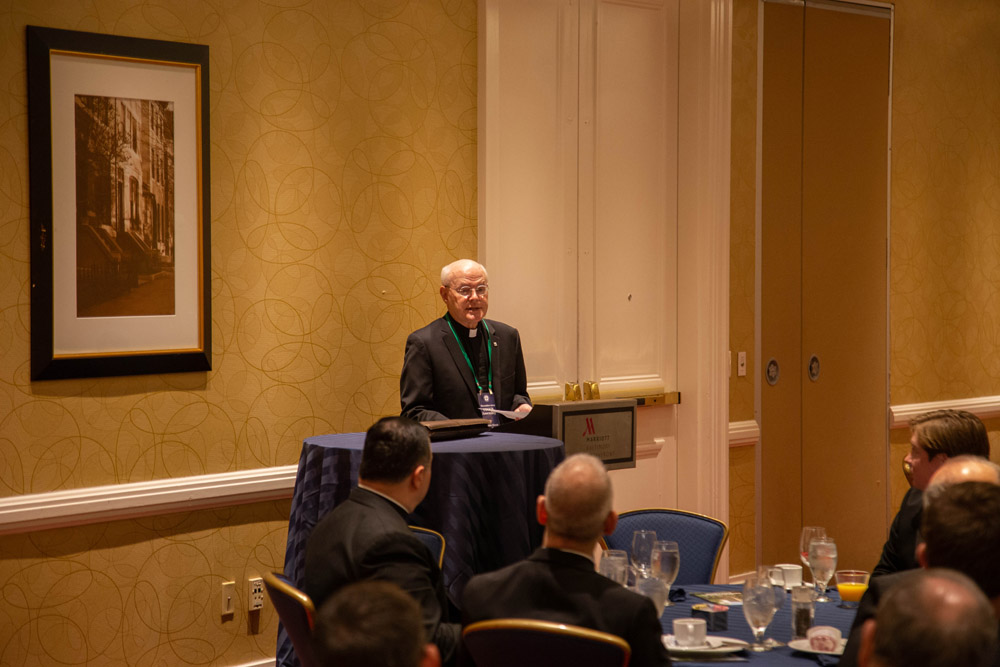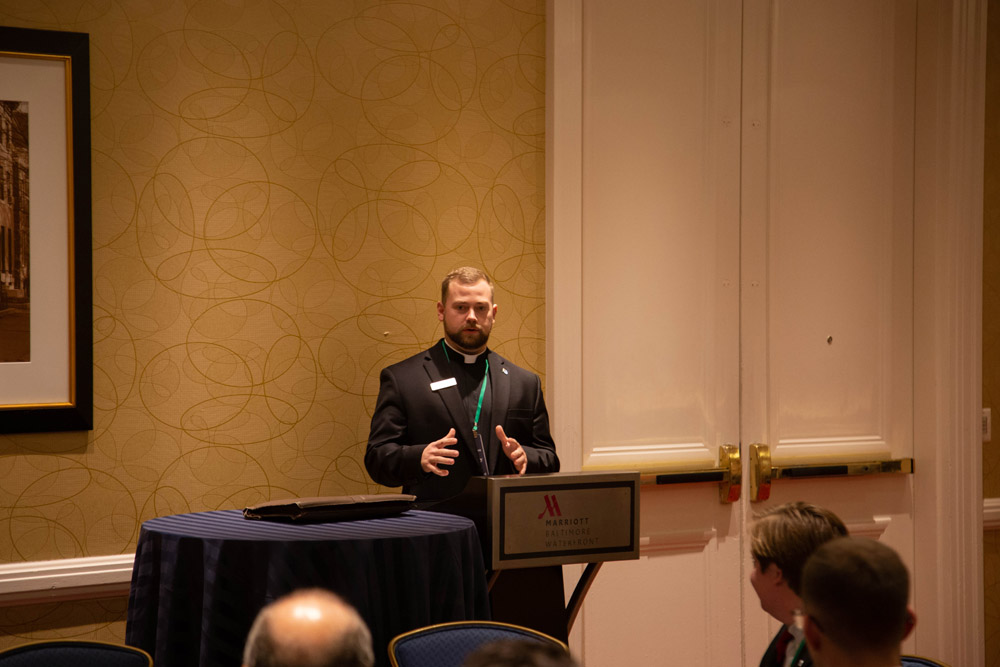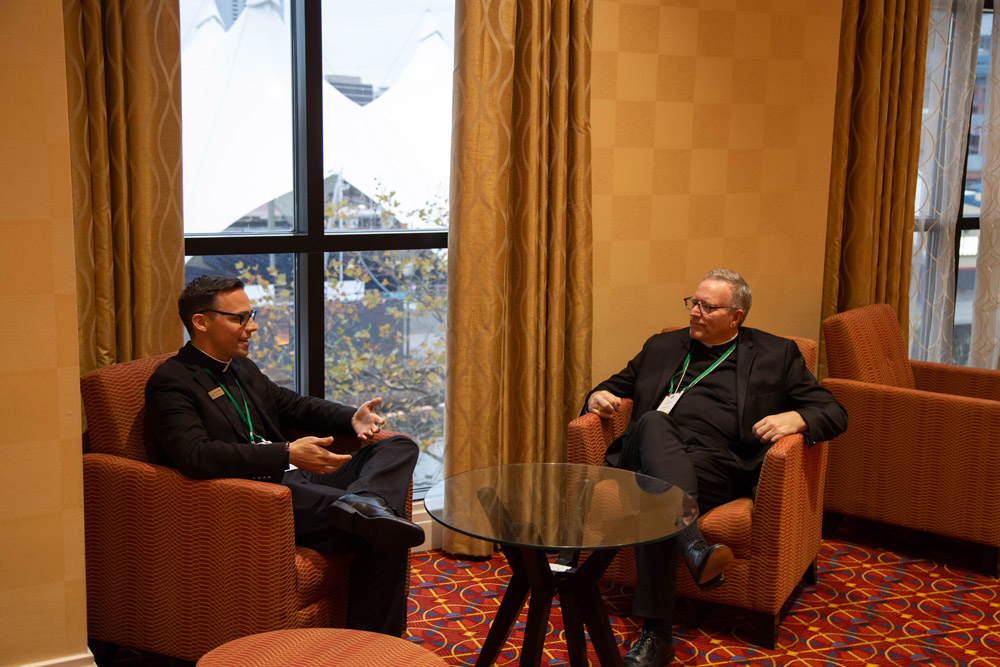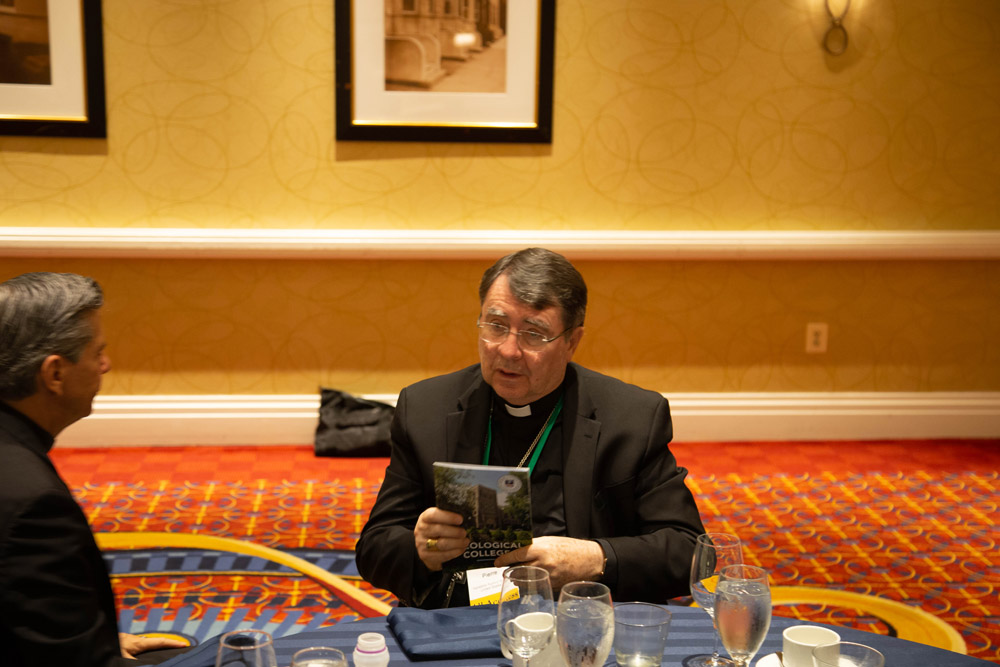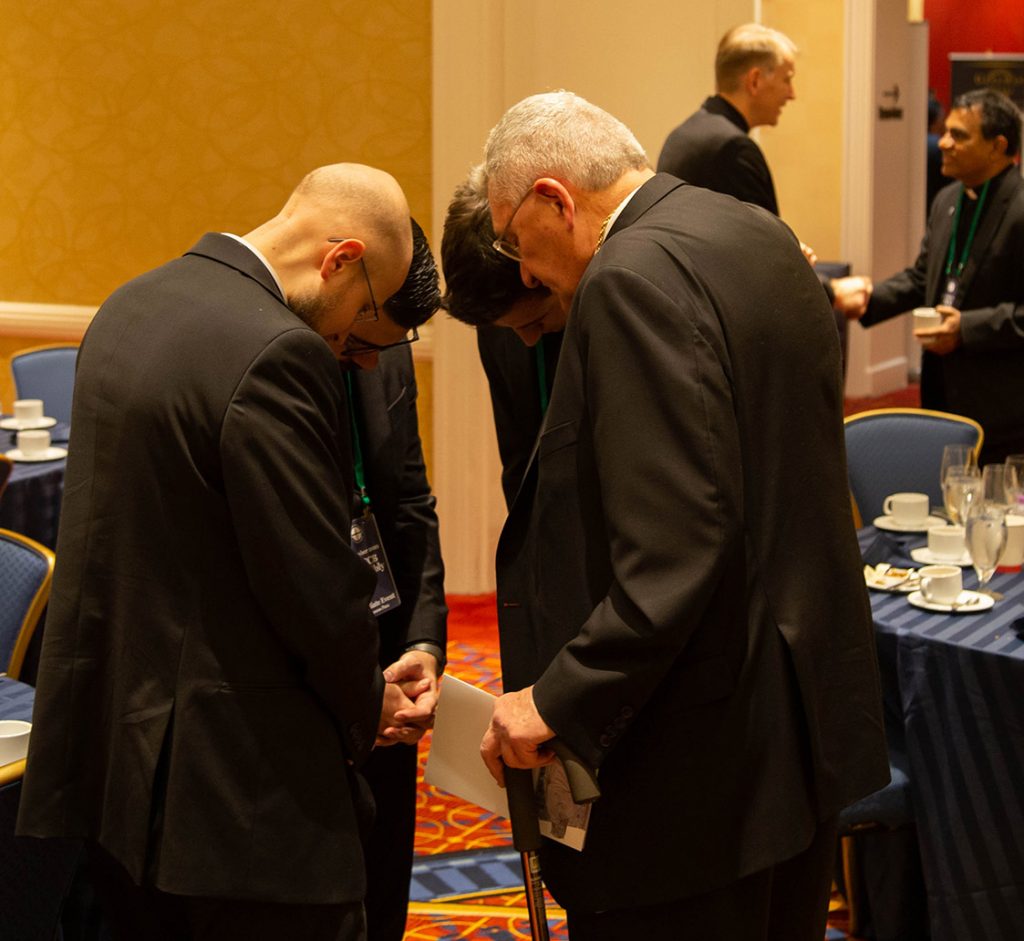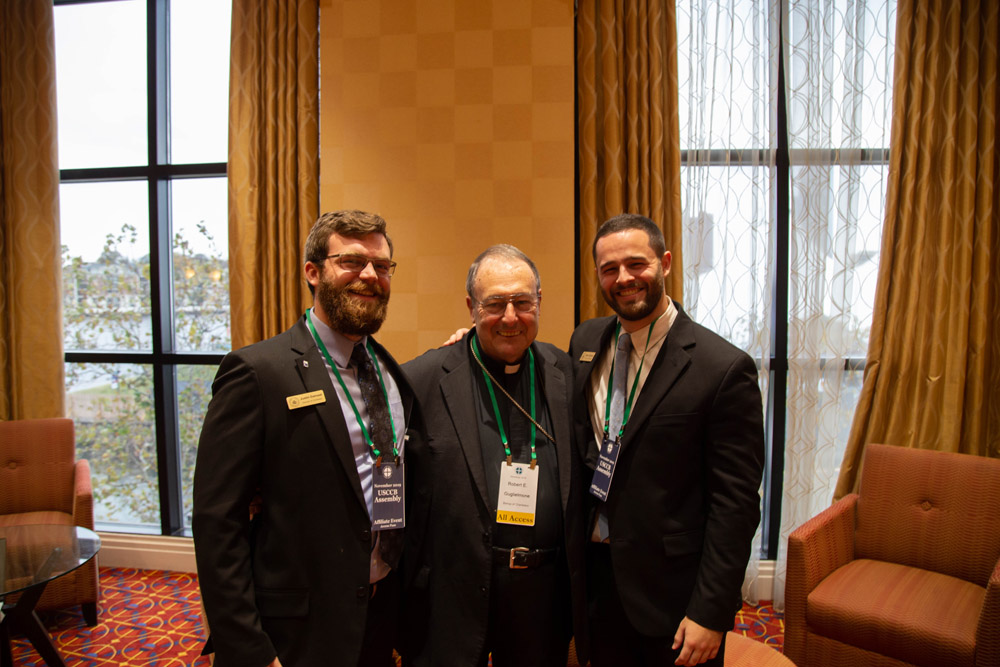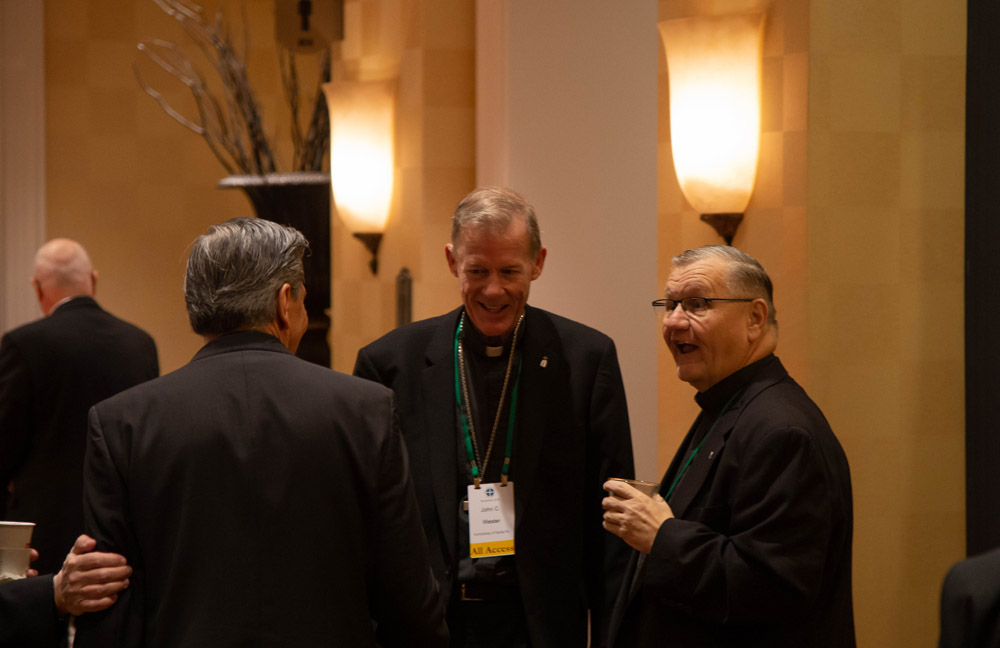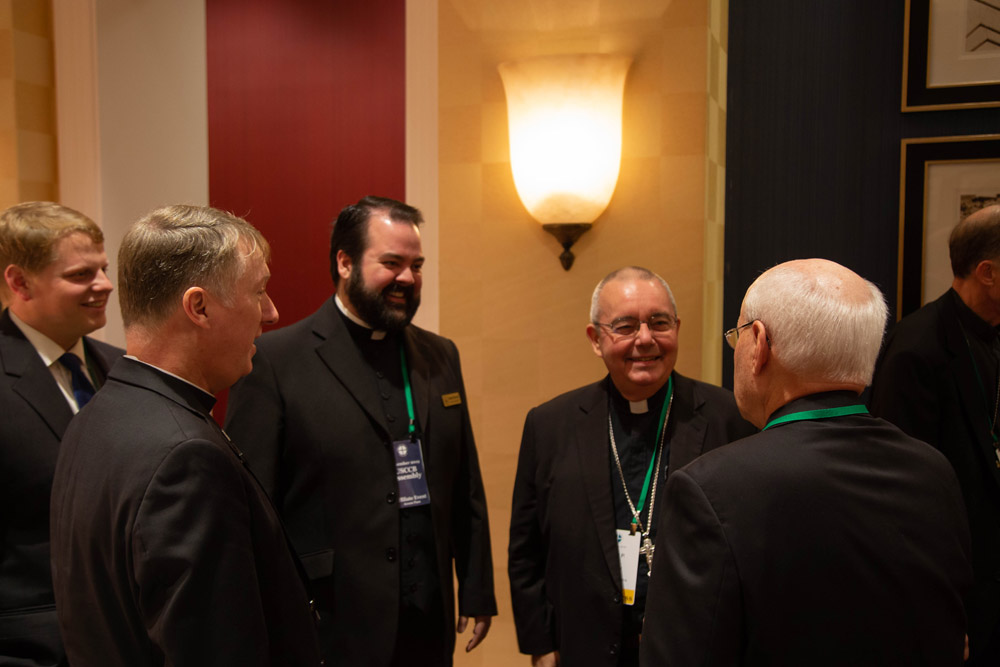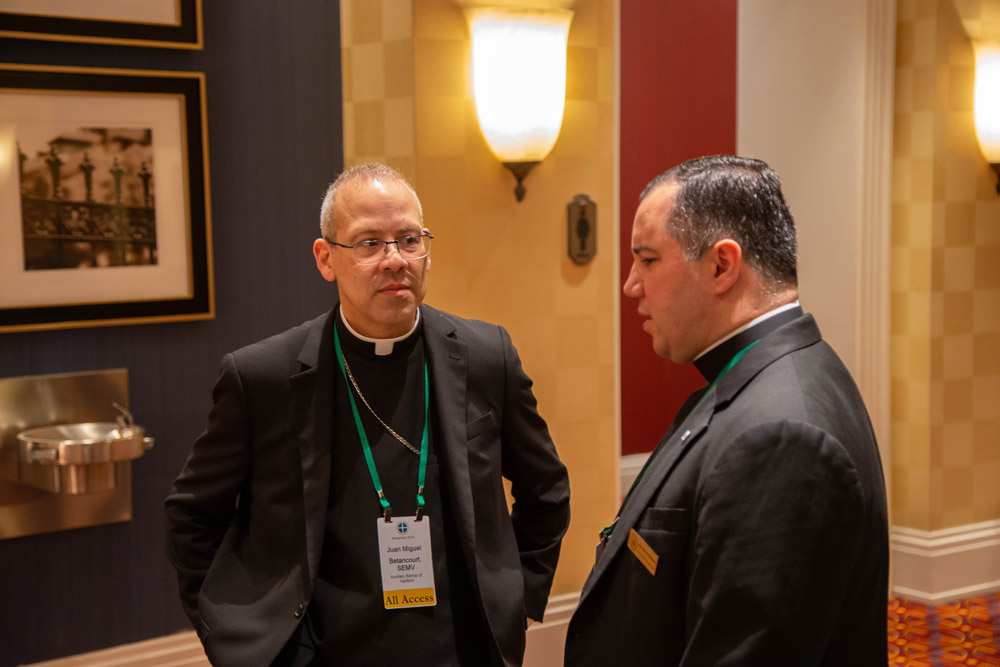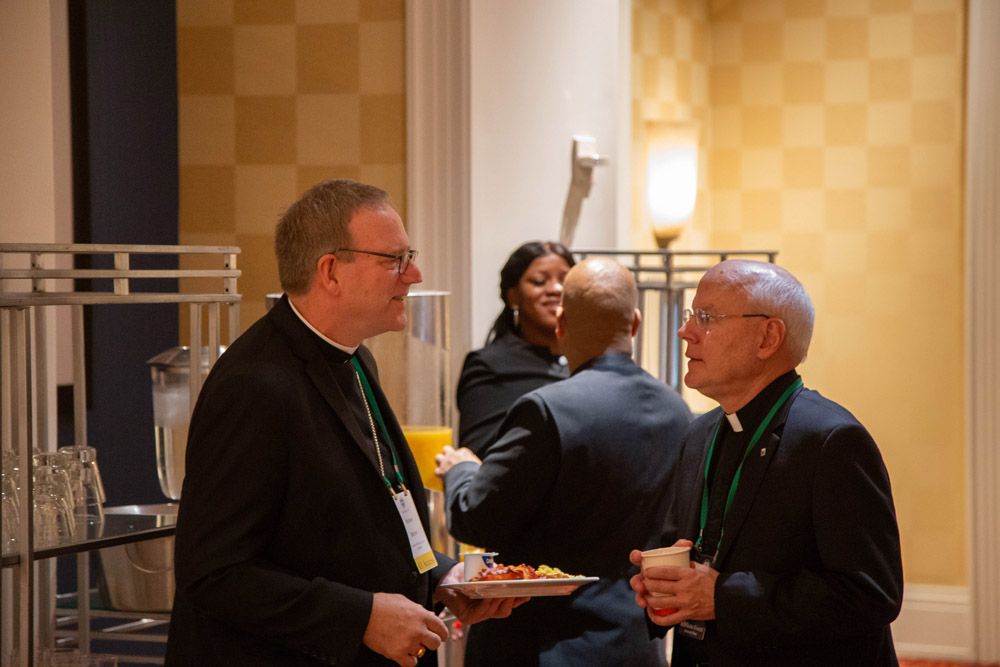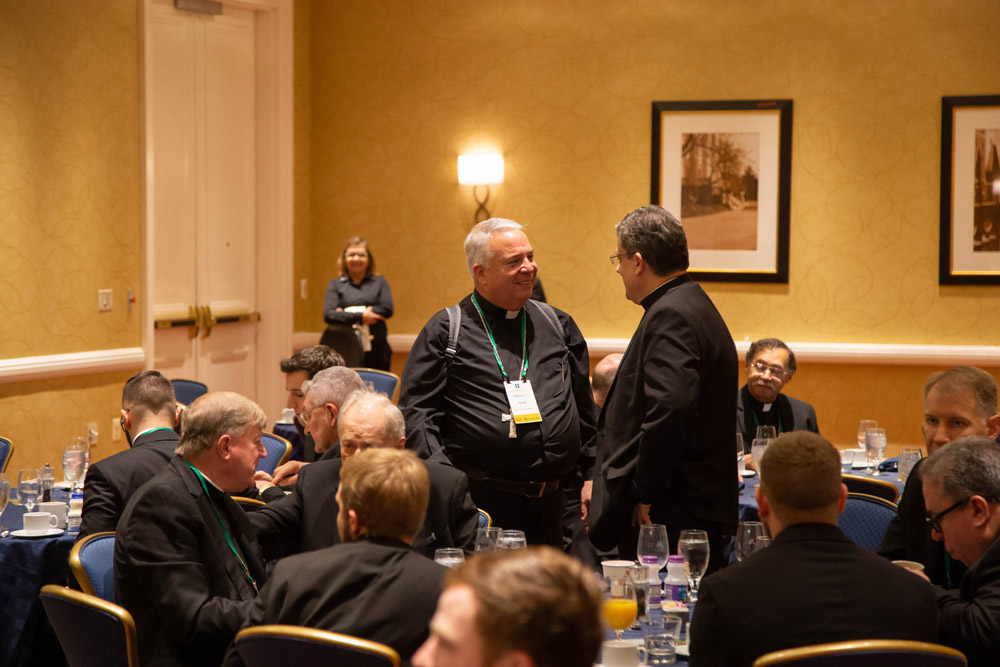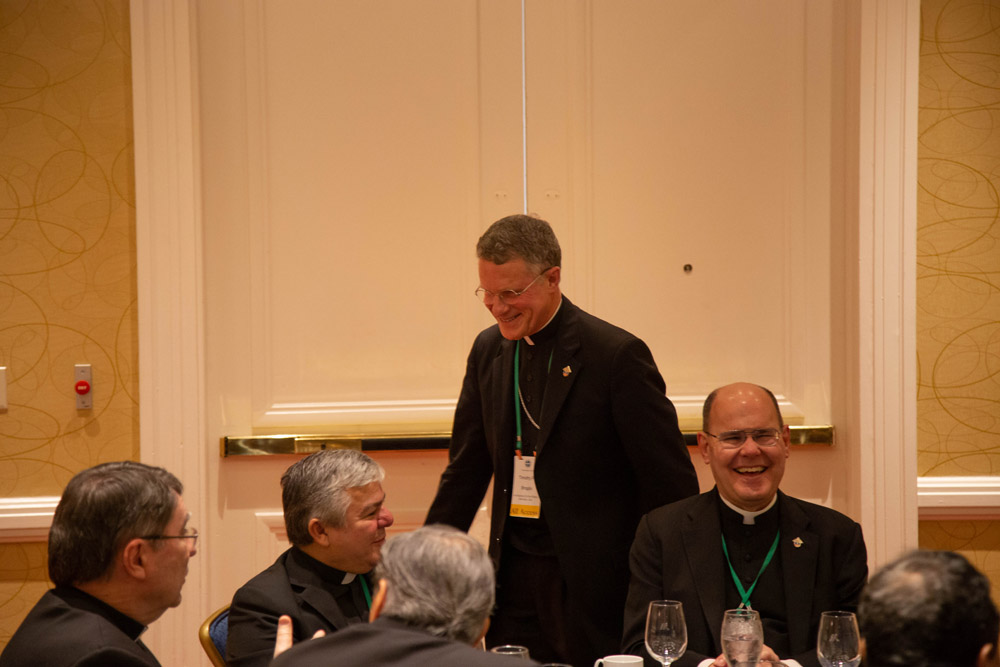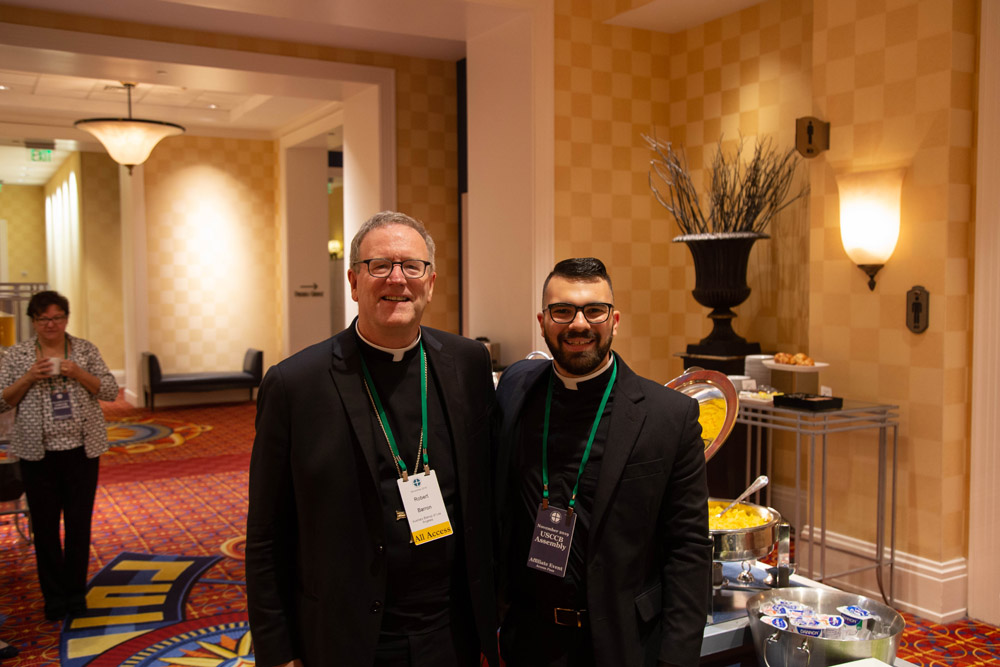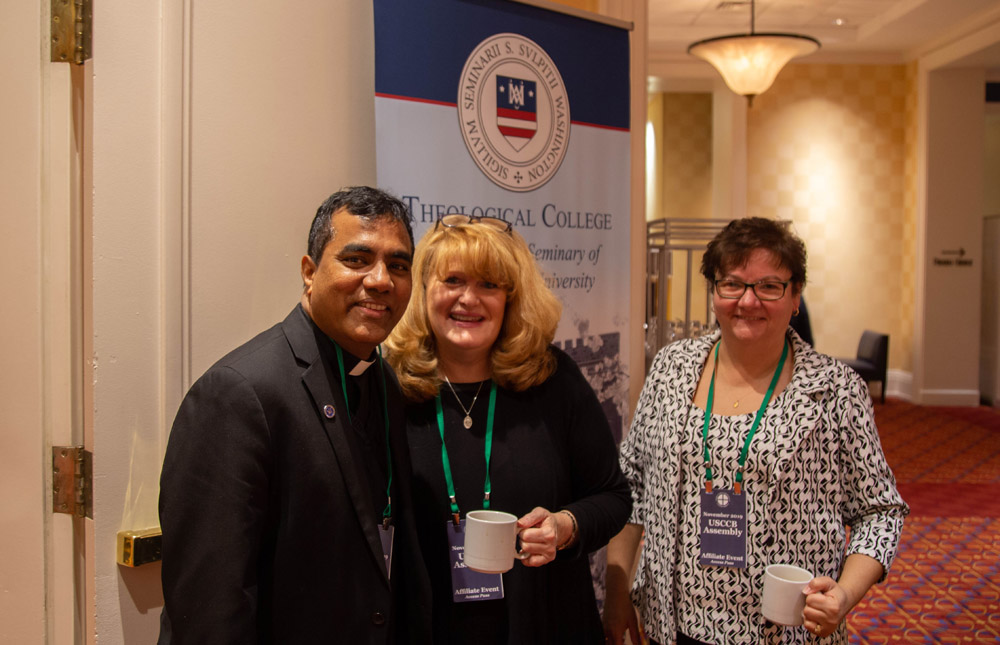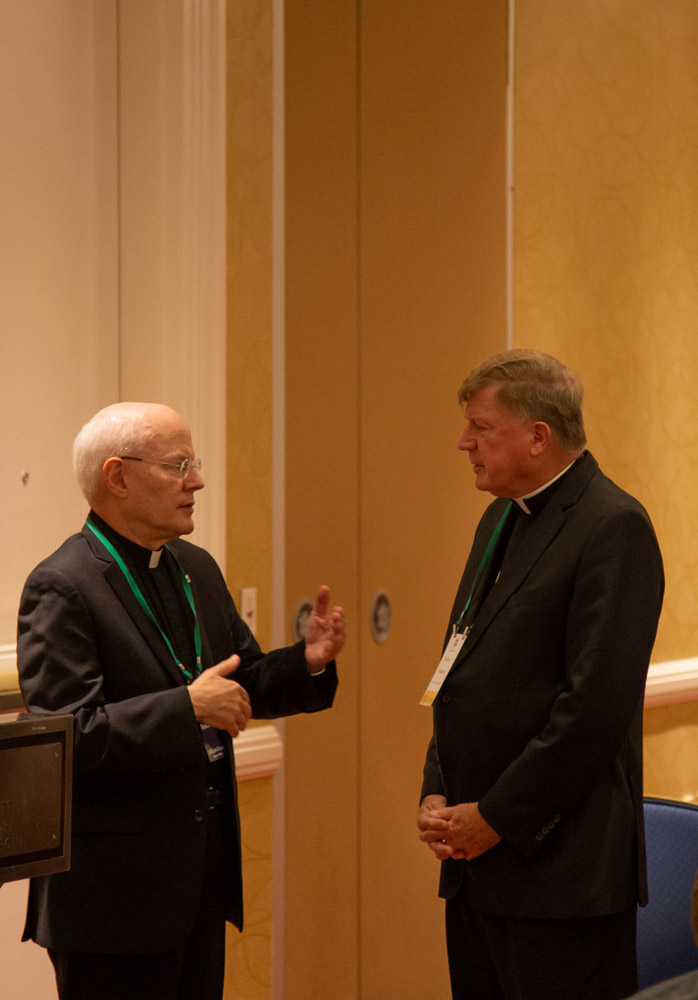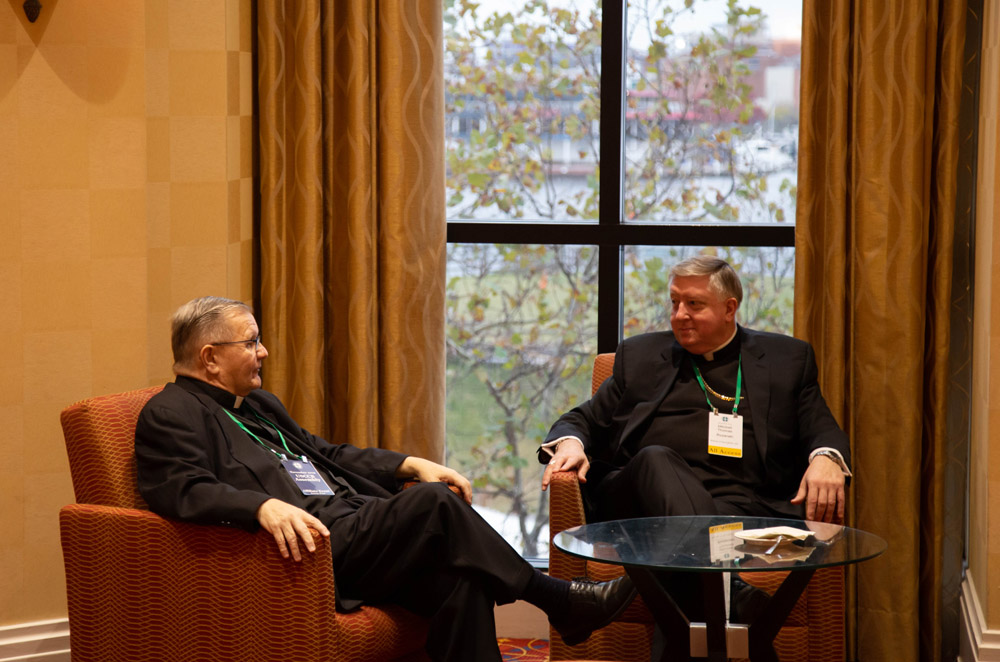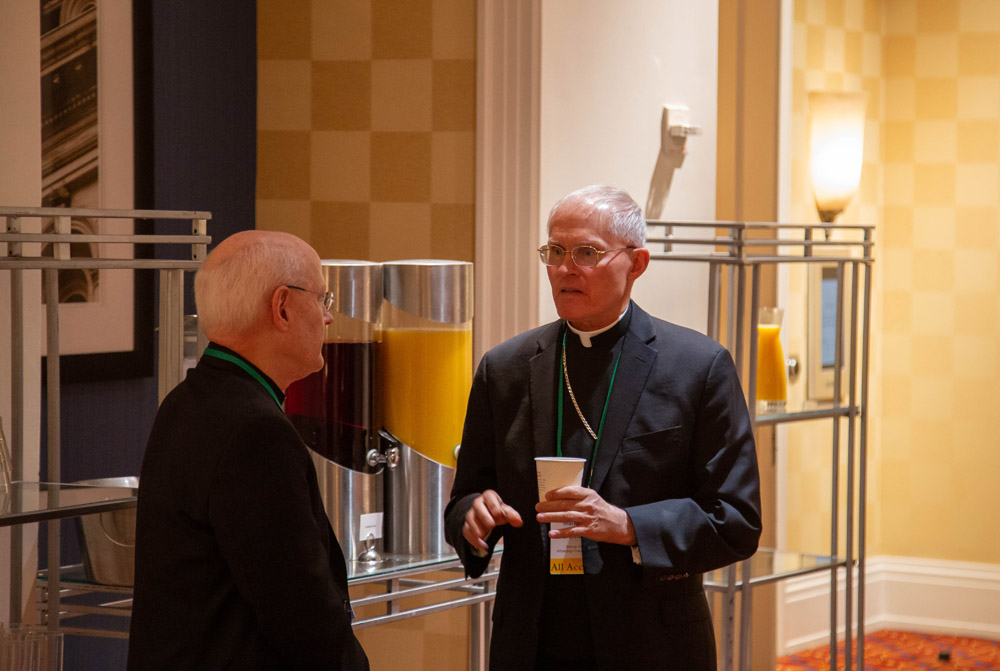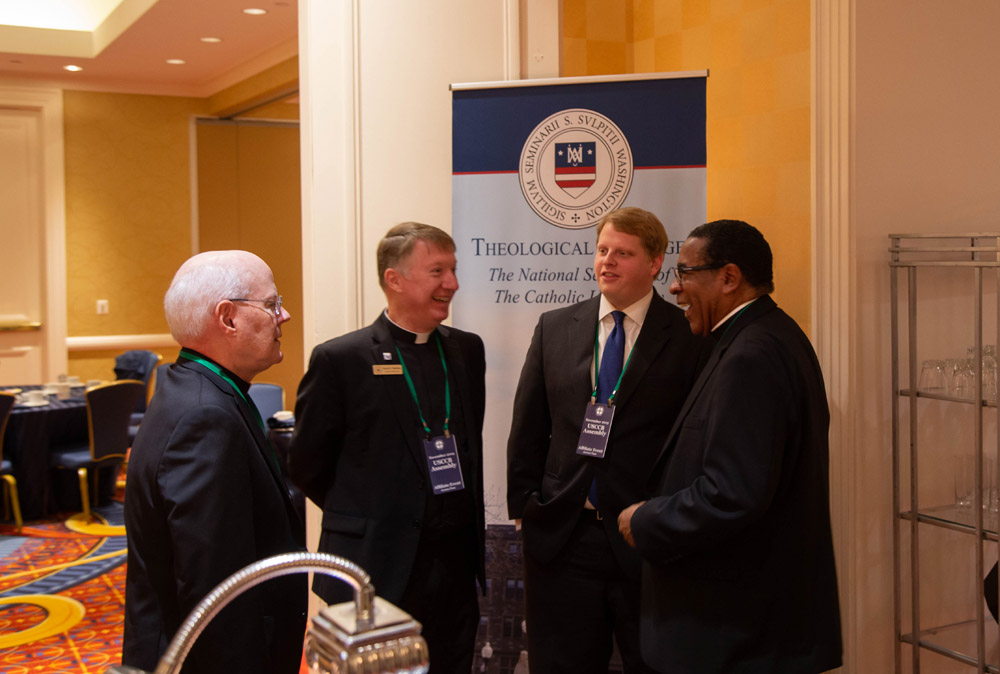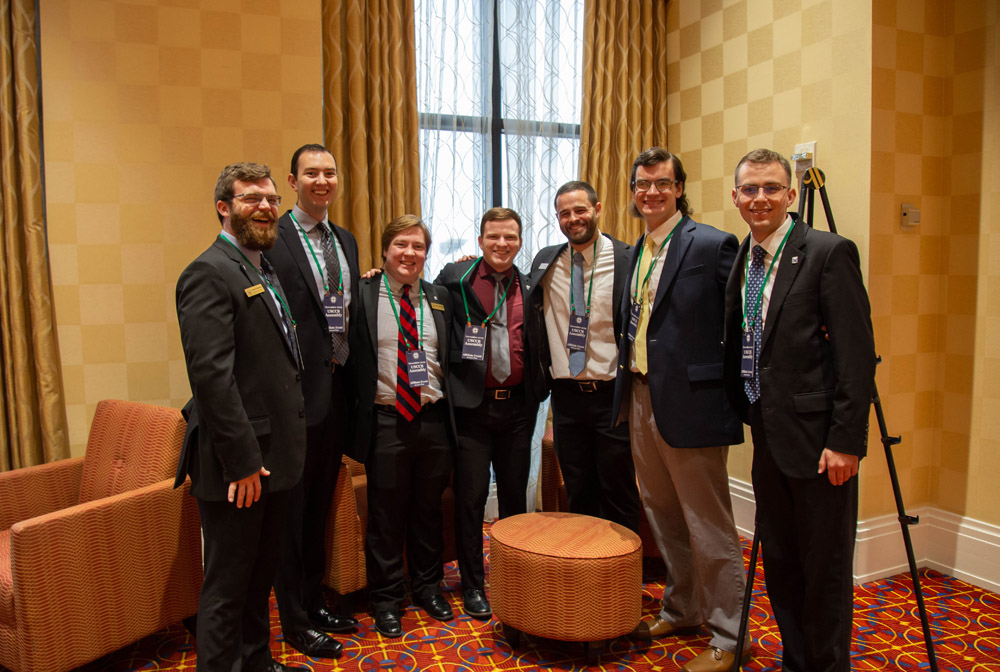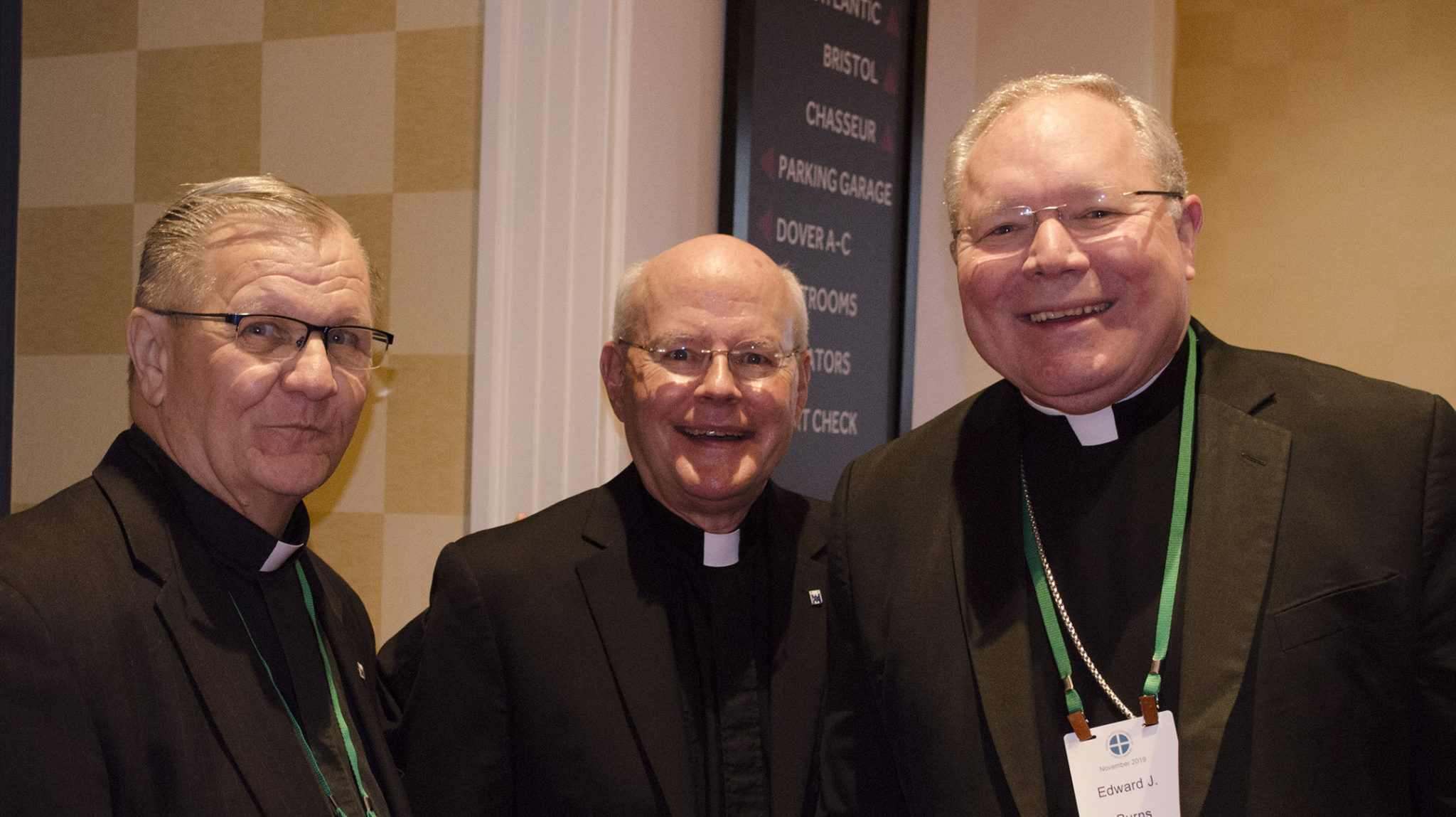
The annual USCCB Bishops Breakfast invitation offers the opportunity for faculty and seminarians to host the bishops while receiving their paternal support and sharing experiences of the first half of the formation and academic semester at TC and Catholic University.
The rector, Rev. Gerald McBrearity, gave an update on the status of the community – 64 seminarians (with 10 more on pastoral year) from 26 different dioceses—and the formation program guiding them. The rector walked through the ways in which TC is able to fruitfully fulfill its responsibilities in the realm of human, spiritual, pastoral, and academic formation. Some highlights to the program include pastoral placements in myriad urban and suburban settings, a robust Spanish language and Hispanic culture learning environment, and the new 5- year STL (and JCL) academic track with housing in a new priests residence. He emphasized the stability and profound mission of the program: “I recently came across this quote passed on by a Benedictine friend: ‘There is no power for change greater than a community discovering what it cares about.’ So I also offer the words of St. John Paul II, who wrote, ‘The great task before us is to make the Church a home base and school for communion. We need a spirituality of communion. Among other things, that means recognizing others as my own concern by sharing their joy and their sorrow, sensing their wants, embracing their needs, and finally offering a deep and genuine friendship.’ To make the Church a home base and school for communion and to communicate to build bridges, to enable encounter and inclusion, and to enrich society are the greatest challenges facing a parish priest, requiring courage even amidst conflict and disappointment. This is what TC cares about. This is the heart of its mission.”
Brett Metzler, a third theologian from Fort Worth and Student Government Association President, described living out this formation mission. The tools used by the Sulpician faculty include full cooperation with bishops and vocation directors; a rich theological education provided by the Catholic University of America; varying pastoral assignments within the wider D.C. area; and internal rector’s conferences on everything from psycho-sexual development to polarities within the Church to social media. “The greatest tool, however, is the freedom for each of us to be an agent of his own formation. Sulpician seminary formation has one agenda. This agenda is that the seminarian becomes a self-aware, happy, healthy, and holy priest. All of these tools provide the seminarian with what he needs to engage his inner self, to know himself, so that he can freely give of himself to Jesus Christ and his Church.”
Bishop Robert Barron (Los Angeles) was in attendance at the breakfast and graciously took the time to meet with Deacon Anthony Ferguson, co-founder of the Alberione Project and Big Tree podcast series. See the bishop’s encouraging endorsement of the seminarians’ social media outreach here.

